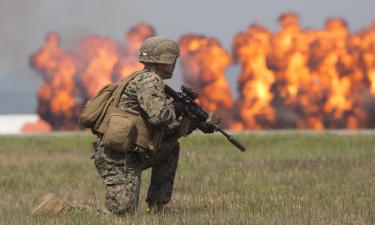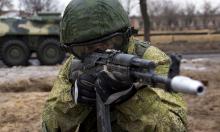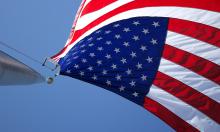Iran gets immediate reward after renewing no-nuke pledge
The reward to Iran for renewing its pledge to refrain from developing nuclear weapons came swiftly Thursday; Tehran won approval to begin talks aimed at membership in the World Trade Organization.
A day after Iran reassured key European ministers that it would continue to freeze suspect nuclear activities, the WTO agreed to start membership talks - which the United States had kept on hold since 1996 by preventing consensus on the bid.
Iranian Ambassador Mohammad Reza Alborzi said the WTO decision "has long been overdue" and that his country was looking forward to join. "Today this house with this decision has done service to itself by correcting a wrong," he said.
The European Union has been telling Iran that the 25-nation bloc would support Iranian membership in the WTO if Tehran keeps its nuclear program within bounds. The EU also has told Iran it can expect economic and technical cooperation.
The U.S. government, which has been going along with the European approach in recent months, said in March it would drop its long-standing opposition to WTO membership negotiations with Iran.
The foreign ministers of Britain, France and Germany and EU foreign policy chief Javier Solana met for three hours with Iranian negotiators Wednesday in Geneva under an implied threat that Tehran could be hauled before the U.N. Security Council to face possible international sanctions over its nuclear program.
British Foreign Secretary Jack Straw said the Europeans got the renewed pledge from the Iranians and agreed to present Iran with more proposals in about two months, but declined to say what the proposals might be.
Hasan Rowhani, Iran's chief nuclear negotiator, said, however, that the proposals would include economic, political and nuclear elements.
"Iran has for its part reaffirmed its commitment not to seek to develop nuclear weapons," Straw told reporters. "The freeze of the enrichment program will continue until an agreement is reached."
The talks were held after the EU began warning that it was moving toward the U.S. position that Tehran should face a Security Council showdown.
The crisis began heating up after Iran announced last week it was considering restarting its uranium-enrichment program, which the Iranians insist is only aimed at generating electricity as permitted under the Nuclear Nonproliferation Treaty. The EU and the United States fear the program is being used to develop nuclear weapons in violation of the treaty.
German Foreign Minister Joschka Fischer said, however, that the Europeans never had to resort to threats.
"I'm happy that it didn't come to that," Fischer said.
The EU-Iran talks, which were also held in Geneva, were on the basis of an agreement the two sides reached last November in Paris. In that accord Iran agreed to suspend uranium enrichment activities in return for British, French and German guarantees that Iran has the right to pursue a peaceful nuclear program.
"The Paris agreement remains in force to ensure that Iran continues its suspension of uranium-enrichment programs and other fuel-cycle activities," Straw said.
As long as the agreement continues, the Europeans won't take Iran to the Security Council, he said.
French Foreign Minister Michel Barnier said that "we continue working in the spirit of Paris and from here on it will take us a few weeks to make concrete proposals with the goal of putting in place a civilian program."
But, said Barnier, the Europeans want to be certain that there are no other nuclear activities in Iran than those with civilian aims.
ALEXANDER G. HIGGINS, Associated Press Writer
Subscribe to Pravda.Ru Telegram channel, Facebook, RSS!




